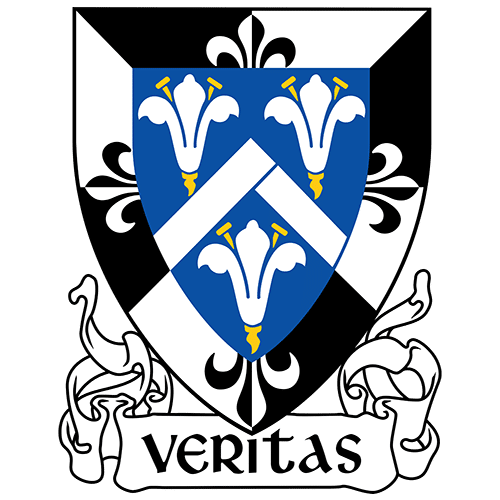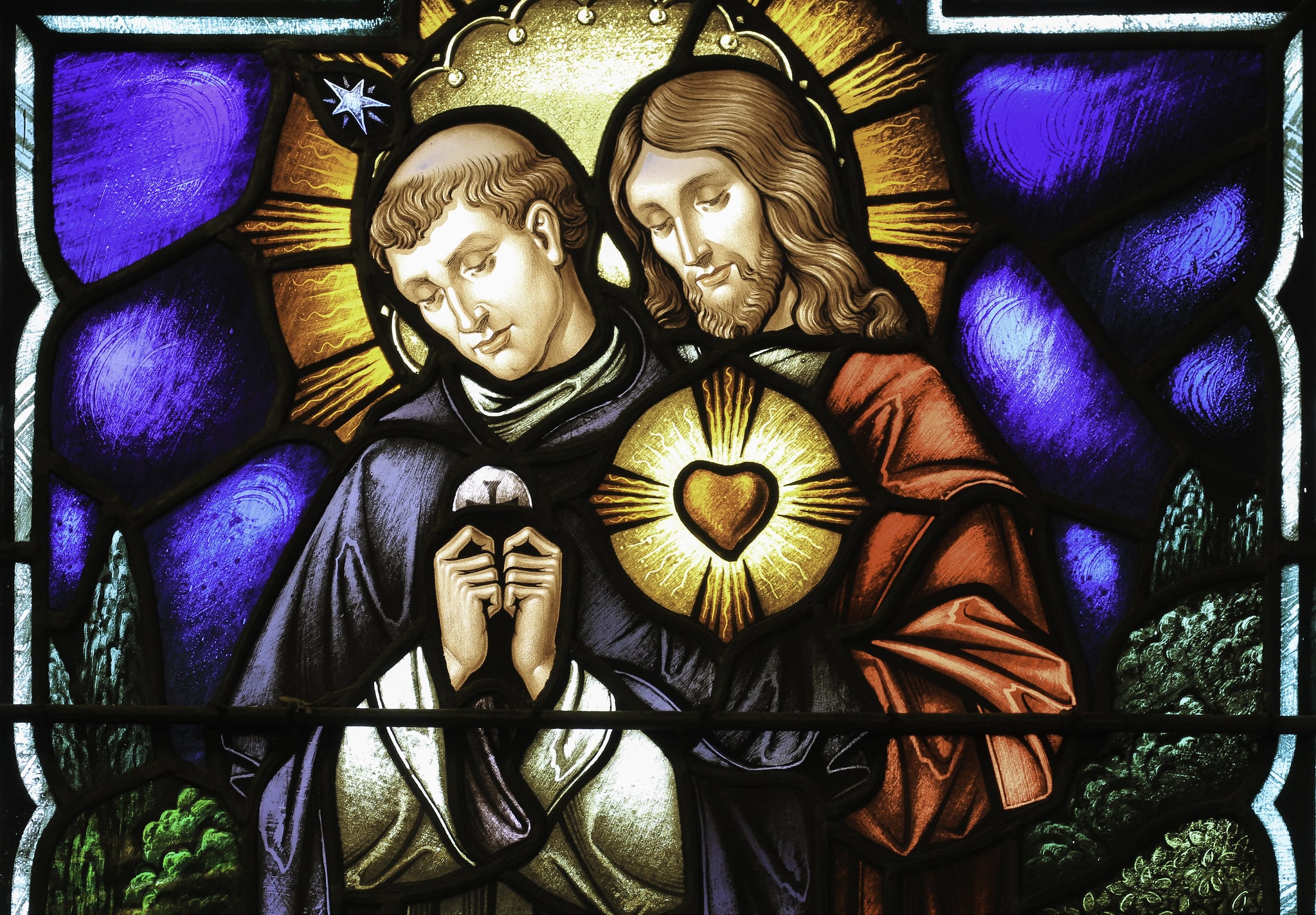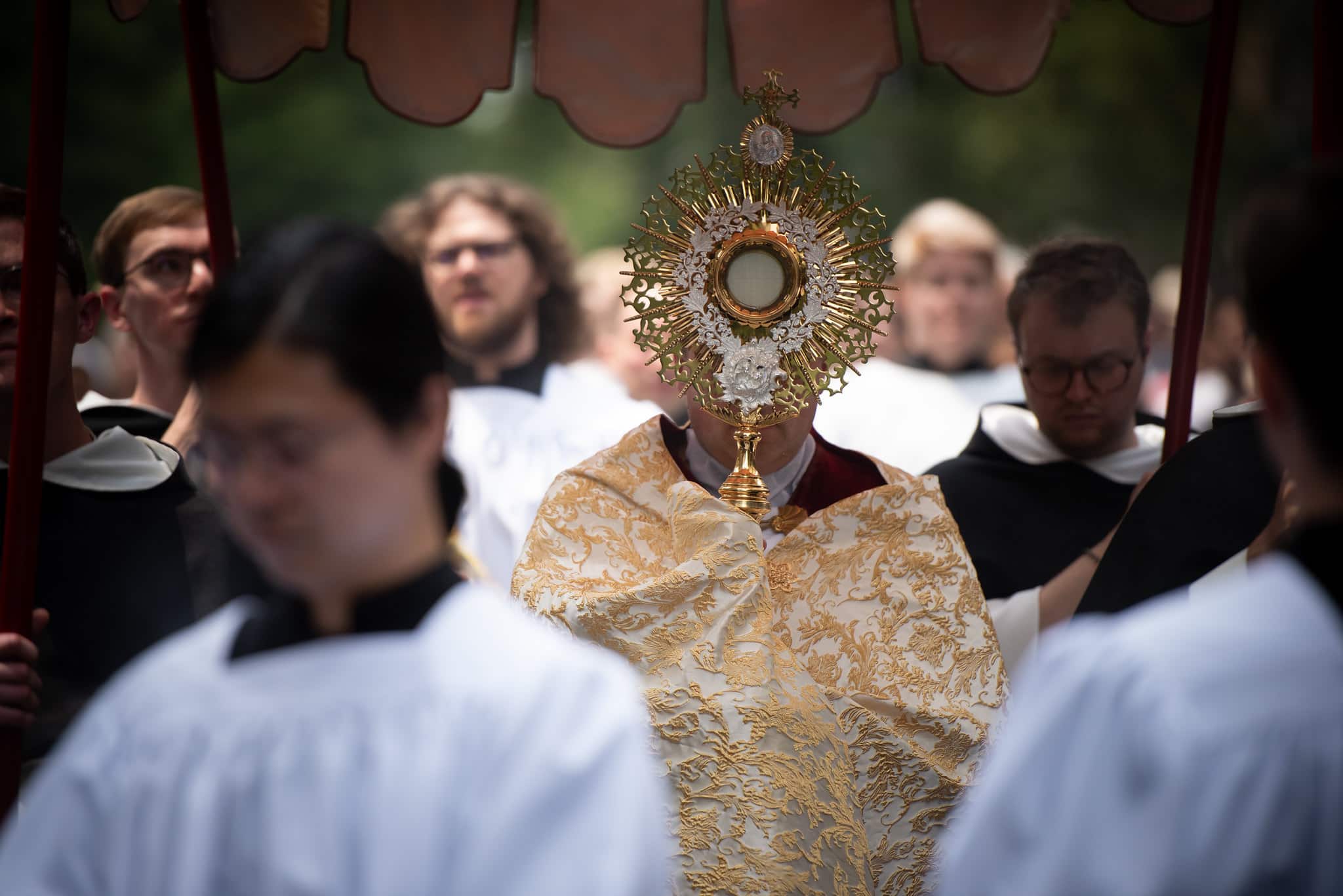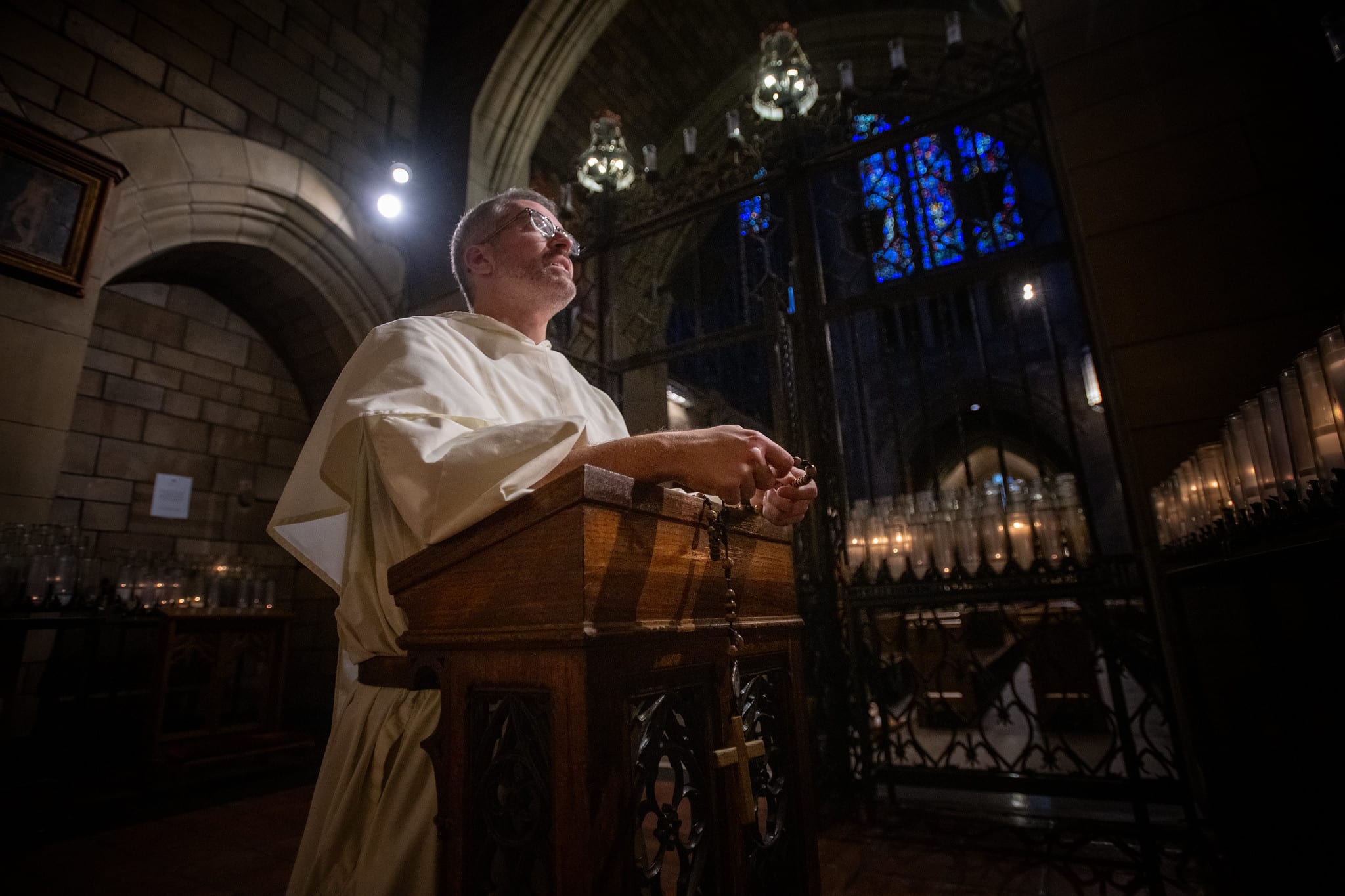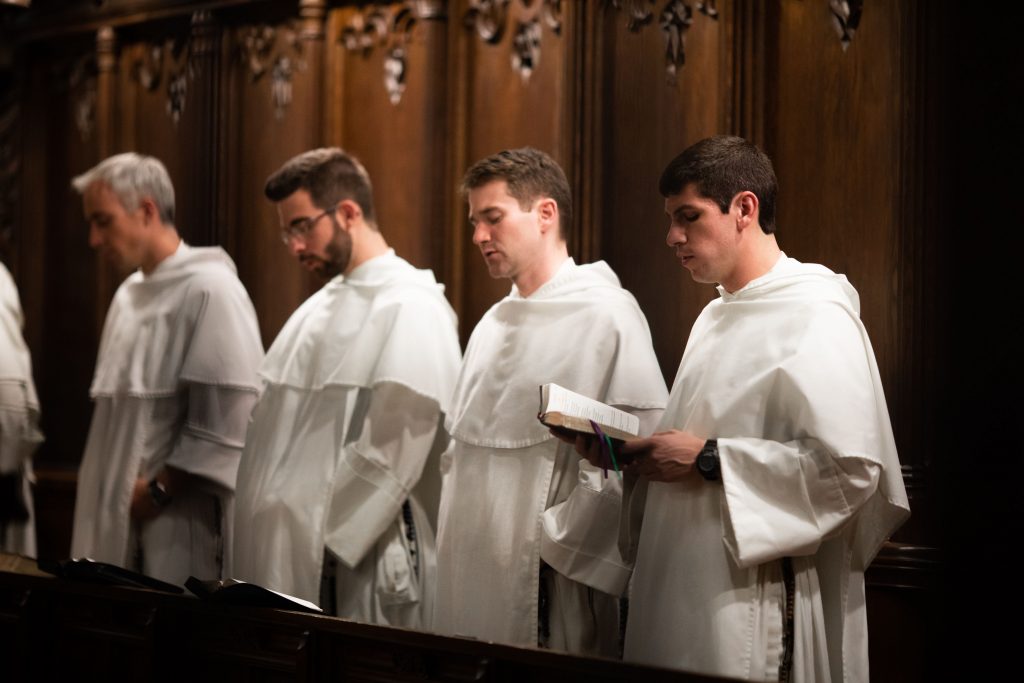
Student Brothers in prayer at the Church of Saint Vincent Ferrer in New York City
Originally appeared in Crux as “Around the World Religious Orders Brace for Aftermath of Covid 19.” Reprinted with permission.
Dominicans Brace for Aftermath of COVID-19
By Elise Ann Allen
For Dominicans in the Province of Saint Joseph in the United States, the return to normal life will look different depending on which state they are in, and their priorities will depend on the specific tasks they are entrusted with.
Father Jacob Bertrand Janczyk, O.P., vocations director for the Province of Saint Joseph, told Crux that “Our priority is always service to the Church,” and that even during a pandemic, men still show up to join the order and to give their lives to God.
Pointing to the Dominican motto, “preaching for the salvation of souls,” Janczyk insisted that “the mission of the Order carries on,” and that he personally is trying to find ways to help young men who wish to enter go through the process in the safest and healthiest way possible.
Part of the discernment process for potential new novices is getting to know Saint Dominic and the Order through reading essential texts, which is still possible, Janczyk said, but the other half of it, getting to know the community by spending time with members on weekends and during visits, is currently off the table.
“For 800 years, Dominican friars have lived a life of contemplation and study for the sake of preaching the Gospel. The fundamental parts of our life do not change, and this is something that we try to impress on men when they are looking at the Order,” he said. “We believe that our faithfulness to the life is attractive in itself, perhaps especially during this time.”
Dominican Father Joseph-Anthony Kress, O.P., chaplain at St. Thomas Aquinas University Parish in Charlottesville, Virginia, told Crux that life dramatically changed for students when the coronavirus hit.
“We had a major tectonic shift in our ministry. All our students went away for spring break, and never came back,” he said, calling the process of reevaluating what to do, “a very big shock.”
Almost overnight, they went from in-person ministry to online bible studies, reflection nights, group hangout sessions and one-on-one check-ins using Zoom and Facetime.
On the whole, Kress said the students “are very much more engaged” than they were before, and some who were unable to attend in-person bible studies due to class schedules are now able to participate in the virtual discussions.
“Our student leaders have done a phenomenal job of understanding the weight of the shift from in person ministry to virtual ministry and the demands that places on them. They’ve done a phenomenal job of balancing their course load while still creating opportunities for our students to engage,” he said.
With much of the immediate future still uncertain, Kress said the plan for now is to continue the same online outreach they have been doing during the lockdowns, and to brainstorm on how to engage new students when the fall semester comes, with different plans depending on whether the semester will be virtual, in-person, or a mix of the two.
“It’s a trying time, it’s a struggle, but I think that our Church will be able to live in the resurrection in a new and beautiful way once we return back,” he said, adding that in his experience, “There’s a new life, and there’s going to be a new breath of the Holy Spirit in all that we do.”
Kress said he believes the coronavirus has helped the Church to grow in ways that it might not have otherwise.
“I don’t think we lost anything. I think we’re going to gain one hundredfold,” he said. “We just have to be attentive to where the Spirit is leading us, and throw up our sails and allow the breath and the wind of the Holy Spirit to carry us into new shores…I think we’re going to gain a tremendous amount as long as we continue to trust and follow Him.”
